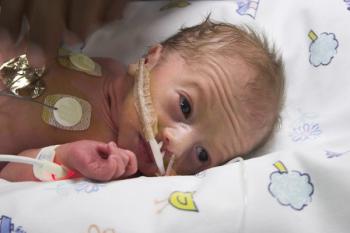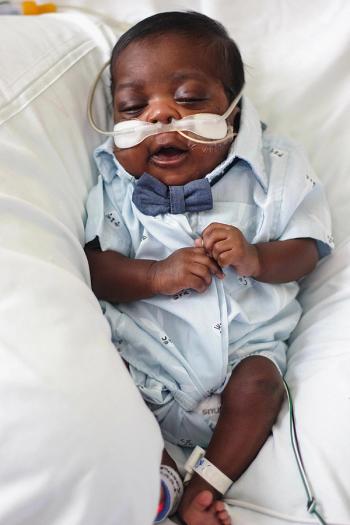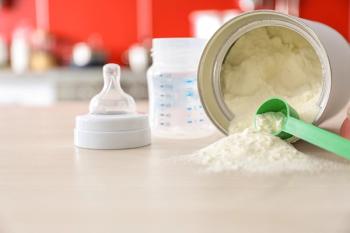
Study Finds No Adverse Outcomes in Newborns of Mothers Treated with Opioids Postpartum
Researchers caution, though, that their findings should not be construed as an endorsement of liberal use of opioids by new mothers.
The
According to ACOG, postpartum pain can negatively affect a person's ability to care for themselves and their newborns. If left untreated, postpartum pain may increase the risk for postpartum depression, increased opioid use and persistent pain.
Small amounts of all opioids pass into breast milk, and in the United States, 83% of infants are breastfed. Although the amounts of opioids present in breast milk are not expected to cause harm to a breastfeeding infant, there are still concerns regarding potential opioid toxicity in breastfed children.
To examine this possibility, a Canadian research team conducted a retrospective cohort study to investigate whether postpartum maternal opioid treatment is associated with short-term increased risk of adverse outcomes in infants. The study was led by
Zipursky and his team analyzed eight years of healthcare data obtained from the ICES MOMBABY database, which links children born in Ontario hospitals to their mothers. They also used the Narcotics Monitoring System and the National Ambulatory Care Reporting System databases.
Participants included 865,691 mother-infant pairs discharged from the hospital within seven days of delivery in Ontario between September 1, 2012, and March 31, 2020. The researchers identified 85,852 mothers who had filled an opioid prescription between delivery and up to seven days after being discharged from the hospital. Each mother who filled an opioid prescription was propensity score matched to one who did not fill an opioid prescription. Opioids prescribed included oxycodone, codeine, morphine, and hydromorphone, with an average supply of three days.
Zipursky and colleagues then looked at the outcome of the newborns over the subsequent 30 days. The study’s primary outcome was readmission of the infant to the hospital within 30 days. Secondary outcomes included emergency department visits for any reason, hospital admission for any injury, admission to the neonatal intensive care unit, hospital admission with resuscitation or assisted ventilation, and death.
Study results showed that 3.5% of children born to mothers who filled an opioid prescription were readmitted to the hospital within 30 days. The same percentage of children born of mothers who did not fill opioid prescriptions were also readmitted. When analyzing secondary outcomes, the researchers found that children of mothers who were prescribed opioids were slightly more likely (hazard ratio 1.04) to have an emergency room visit than infants born of mothers who did not fill an opioid prescription. There were no differences between the two groups in all other secondary outcomes, and no deaths occurred in either group.
Zipursky and colleagues conclude that postpartum maternal opioid prescription is not associated with an increased risk of infant hospital readmission and other adverse outcomes shortly after birth compared with mothers who do not receive opioid prescriptions. However, they recognize several limitations and potential confounders of their study. For example, the researchers had no information regarding how much of the opioids the mothers took after filling the prescriptions. They also note that individuals may avoid or reduce breastfeeding while taking opioids.
Although this study found no increased risk of harm in infants born of mothers prescribed opioids postpartum, the researchers advise caution with postpartum opioid prescribing. They wrote, “Our findings should not be construed as an endorsement of liberal postpartum opioid use.”
Newsletter
Get the latest industry news, event updates, and more from Managed healthcare Executive.

























